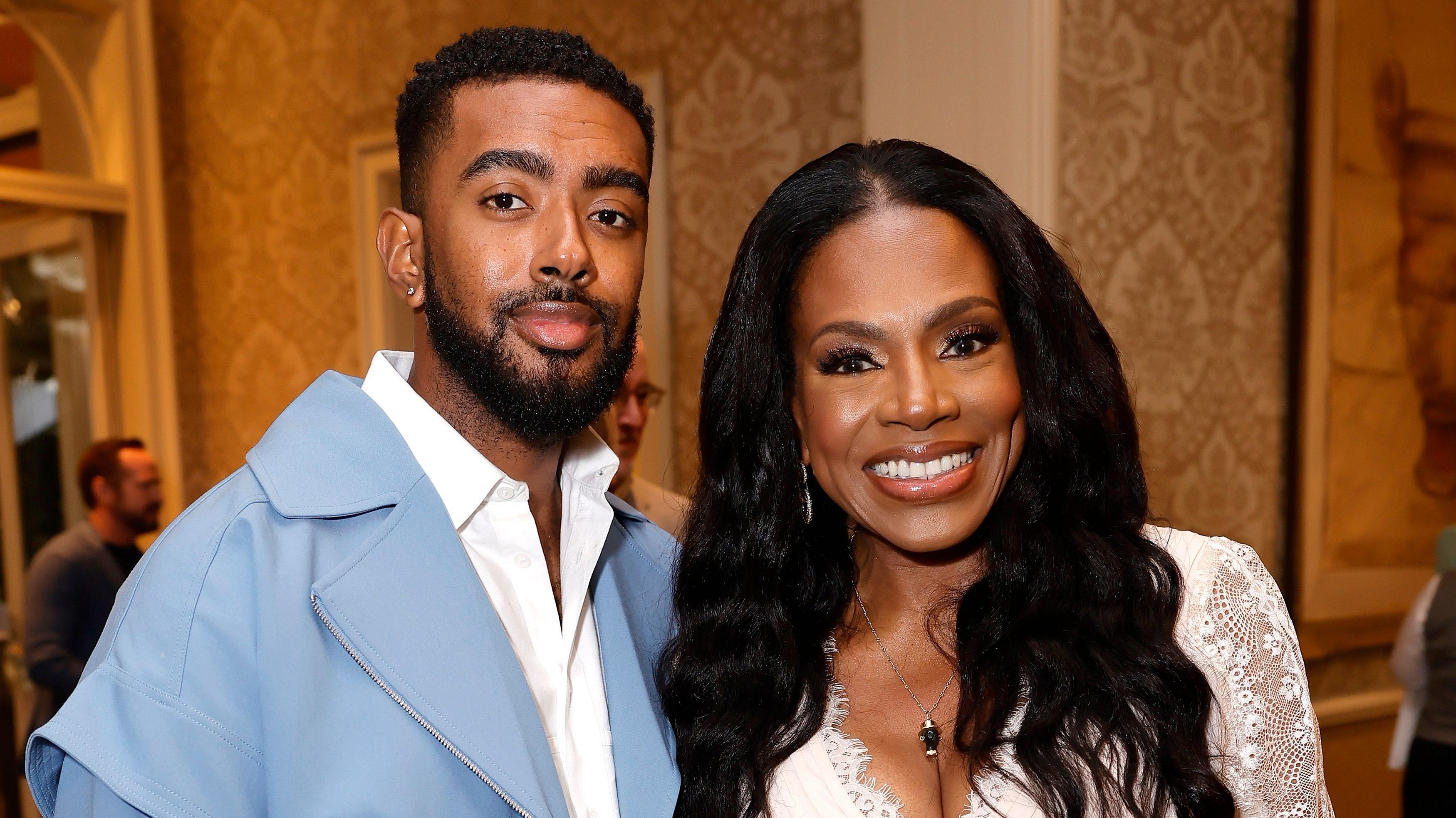When Sheryl Lee Ralph’s son Etienne Maurice and his fiancée, ABC News journalist Stephanie Wash, are ready to begin planning their wedding, Ralph is offering her services.
On Wednesday, the award-winning actress sat down with Entertainment Tonight and caught the public up on her son’s recent engagement to Wash, expressing her excitement.
“I’m so happy, I’m so inspired; I love it,” she told ET.

She added, “The fact that Stephanie just fits and blends so well into our family, you know, that’s all you can ask, that your children are happy in different stages of their life.”
Ralph also told ET that while she’s currently giving them their space to enjoy their engagement, when the happy couple is ready, she’s eager to lend a hand in the wedding planning.
“They’re just at the beginning of it, so when they need help, they’ll ask me, and I will be there to give it,” she said.
It’s always ideal when families on both sides of an engaged couple are excited about the impending union. However, with wedding traditions constantly evolving, both sides may not have the same level of involvement in planning the big day. Some might even argue one side of the family is typically left out (hint: it rhymes with “brooms”). And with more and more couples paying for their weddings themselves, the responsibilities and involvement of parents on both sides have become increasingly blurred.
While it is true that not every wedding has a bride and groom, when it does, the bride’s family traditionally picks up the cost of the wedding and reception. However, there are also traditions the groom’s family typically pays for and helps to plan. Though contemporary wedding planning has no hard and set rules, below, we break down what the groom’s family is traditionally responsible for. As wedding expenses begin to add up, they may be worth considering.
Paying for the wedding rings
Whether the groom pays for them himself or the support comes from his family, paying for the wedding bands falls under the jurisdiction of the groom’s family. Regardless of whether this tradition is upheld, the couple typically still chooses or designs the rings themselves.
Coordinating the groomsmen’s attire
Similar to the rings, if there’s a bridal party, paying for (and coordinating!) the groomsmen’s attire is another responsibility for the groom’s side. The groom’s parents could foot the bill for the groom and groomsmen, or the groom could coordinate this himself. However, getting the bride’s input on colors, materials, and the overall aesthetic is highly advisable — and potentially a non-negotiable.
Buying the bride’s bouquet and flowers for both sides of the family
On top of everything needed to put on a wedding, flowers can be costly. Therefore, it could be a great relief that tradition dictates the groom’s family pay for the bride’s bouquet, the boutonnières for the groom, groomsmen, and corsages and boutonnières for both sides of the family. (Sorry, brides — the bridesmaids’ flowers are still on you.) This gesture from the groom’s family can add immeasurable beauty to the day in an impactful way.
The marriage license and officiant fee
You can forgo virtually everything traditionally associated with a wedding except having a marriage license and an officiant. Believe it or not, these two components also fall in the category of groom’s family duties and could be something the groom takes care of on his own or with the support of his parents.
Arranging accommodations for the groomsmen
If the groom’s family is looking for a way to support the wedding, they can spring to pay for the groomsmen’s accommodations, if necessary. Out-of-town groomsmen could stay together in a vacation rental or hotel funded by the groom or his parents.
Hosting the rehearsal dinner
One consistent tradition is that the groom’s family pays for and hosts the rehearsal dinner. This is their opportunity to welcome their future daughter-in-law and her family into theirs. It’s also an excellent time for the bridal party, close friends, and family to bond and break the ice before the big day. However, the family should get the couple’s input and, if necessary, work with their planner to pull it all together
Picking up the drink tab at the reception
The vibes of the ceremony may have been courtesy of the bride’s family, but the vibes of the reception and the beverages can be courtesy of the groom’s. It is customary for the groom’s family to pay for the alcohol at the reception — but while customary, it isn’t a requirement. Some families may not endorse alcohol use or have the budget, so keep your expectations reasonable.
Providing the reception DJ or band
A traditional way to look at a couple’s wedding is that the ceremony is the bride’s family giving their daughter away, while the reception is the groom’s family welcoming her in celebration. If the groom’s family agrees with this mindset, they could spring for the DJ or the band at the reception and help the couple have an epic time dancing the night away.
The honeymoon
Couples no longer go on honeymoons with the immediacy or rate they used to, with one major reason being the cost. Another reason for the shift in honeymoon trends could be that the groom’s family has had increasingly less involvement in recent years, including paying for the honeymoon. Should the groom’s family feel so inclined, helping the couple boost their honeymoon budget could be a great way to help them get their marriage off on the right foot.
What to do when the couple is non-traditional?
The above customs can be and have been amended to suit families and couples of all types as they see fit. Whether the couple is same-sex or simply non-traditional, many modern couples take on the cost of getting married themselves. Regardless, families may still want to help out. In that event, a family planning meeting with both sides present could be an excellent place to start. During this meeting, each side can offer a total figure they’re willing to spend or volunteer to host or pay for certain aspects of the couple’s wedding.

Kay Wicker is a lifestyle writer for theGrio covering health, wellness, travel, beauty, fashion, and the myriad ways Black people live and enjoy their lives. She has previously created content for magazines, newspapers, and digital brands.
TheGrio is FREE on your TV via Apple TV, Amazon Fire, Roku, and Android TV. TheGrio’s Black Podcast Network is free too. Download theGrio mobile apps today! Listen to ‘Writing Black’ with Maiysha Kai.

